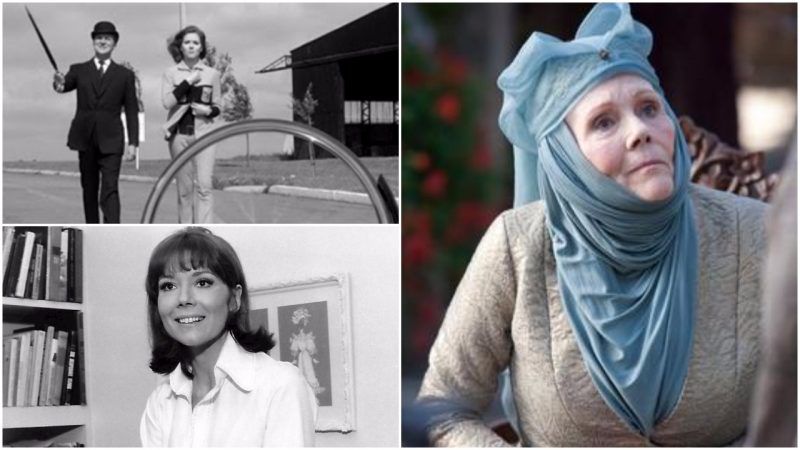There are a few examples of Hollywood actresses who manage to transcend their early silver-screen success, in roles that celebrated their sensuality and striking beauty, to play strong and compelling characters later in life. Ranking high among them is Diana Rigg, the Bond girl from the late 1960s who in HBO’s Game of Thrones gave one of the best performances in the whole series with the dazzling, witty of Olenna Tyrell.
She rose to fame by portraying the character of Emma Peel throughout the 1960s in Sidney Newman’s action comedy television series The Avengers, where she starred alongside Patrick Macnee as John Steed, the quirky and unusual British spy.
She was his “partner in crime” in all his mischievous acts and eccentric adventures. As The Avengers aired its last season, Rigg’s next step was onto the big screen as she was cast in the part of Teresa “Tracy” Draco in Peter Hunt’s 1969 James Bond installment, On Her Majesty’s Secret Service.
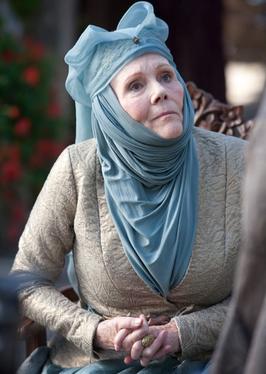
Tracy is the Mercury Cougar Convertible-driving Bond girl in the movie, a widow to a former philanderer who died in a car accident and the daughter of Marc-Ange Draco, a powerful crime boss and Bond’s nemesis. Of the 70-plus Bond girls brought to the screen during all these years, she probably has the most compelling character, with a full and interesting backstory as well as a chance to grow as the story unveils. She is also the only Bond girl to marry the secret agent.
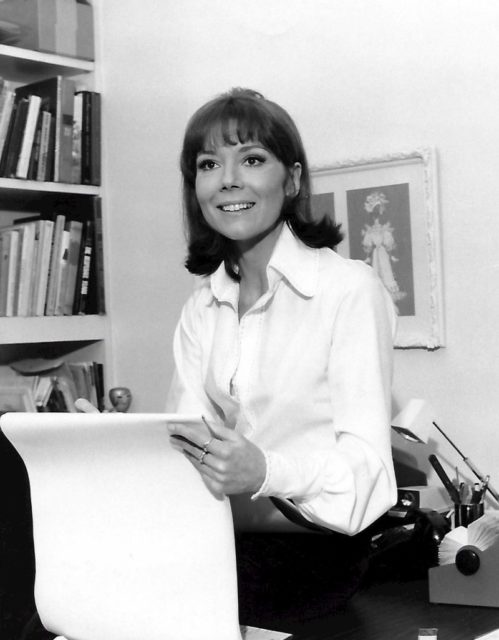
She meets 007 for the first time at the beach where, desperate and jaded over her empty existence, she attempts to take her own life. She is rescued from the sea by Bond, who then saves her a second time a short while later.
As the plot develops, Tracy comes to know that she is being used by her father as bait to get to Bond. But she finds knew meaning in life, growing in strength from being herself the victim of circumstance and gradually becoming the rescuer when this elegant new man in her life proves to be worthy of saving. As good things usually don’t last forever, their happiness is short-lived, and she is the one that takes the bullet for him.
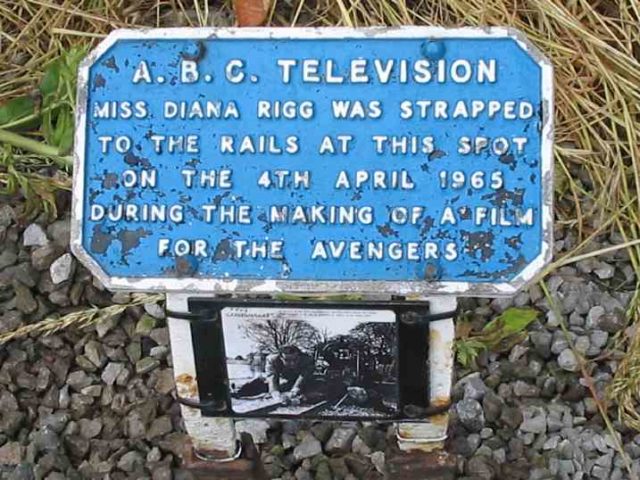
Two years after her Bond success, Rigg’s nude appearance onstage with an equally unclothed Keith Michell in the Broadway play Abelard and Heloise created a stir among theater goers and critics. It was a role for which Rigg was awarded the first of her three Tony Awards. The scandalous scene spurred John Simon, a theater critic for New York magazine, to comment: “Diana Rigg is built like a brick basilica with insufficient flying buttresses,” which, as the actress candidly remarked in an interview for the Daily Mail, was an insulting reference to the size of her breasts.
A crude remark coming from a man who also referred to Roger Moore as “a lump of English roast beef” for one of his appearances. Diana came out strong when she released a book filled with a collection of bad reviews and remarks about public figures, No Turn Unstoned, which was inspired by Simon’s review.
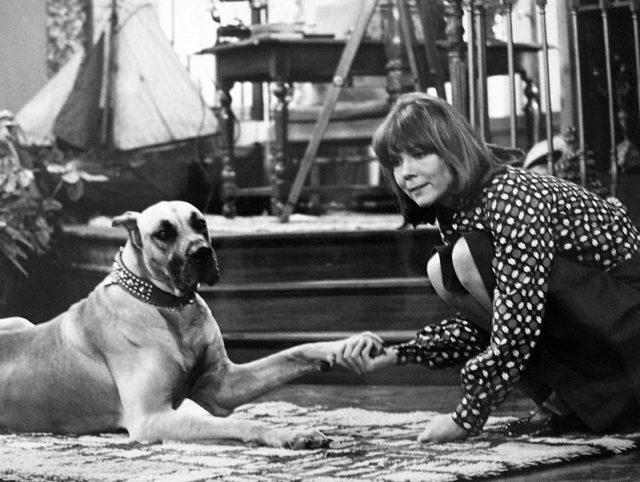
While she didn’t feature in any top box office starring roles in the following years, she did her own thing and enjoyed a busy period of acting in theater, television series, and feature films, both in England and the U.S. She brought to life characters created by Shakespeare, Shaw, Ibsen, and Moliere.
Her most film roles included that of Mother Superior in John Curran’s 2006 film adaptation of W. Somerset Maugham’s 1925 novella The Painted Veil, where she starred alongside Sally Howkins, Toby Jones, and Edward Norton.

copyright owner unknown Fair use
It was in 2010 that she got a chance once more to prove what audiences were missing, when David Benioff and D.B. Weiss, the creators of the most watched television series of all time, invited her to play Lady Olenna Tyrell in the adaptation of George R. R. Martin’s popular fantasy novels.
The 73-year-old actress said yes, and became the fearless and cunning Queen of Thorns in Game of Thrones: “a brilliant, witty truth teller,” wrote The Telegraph.
If she was ravishing when she was young, she is now, without doubt, more charismatic than ever before.
